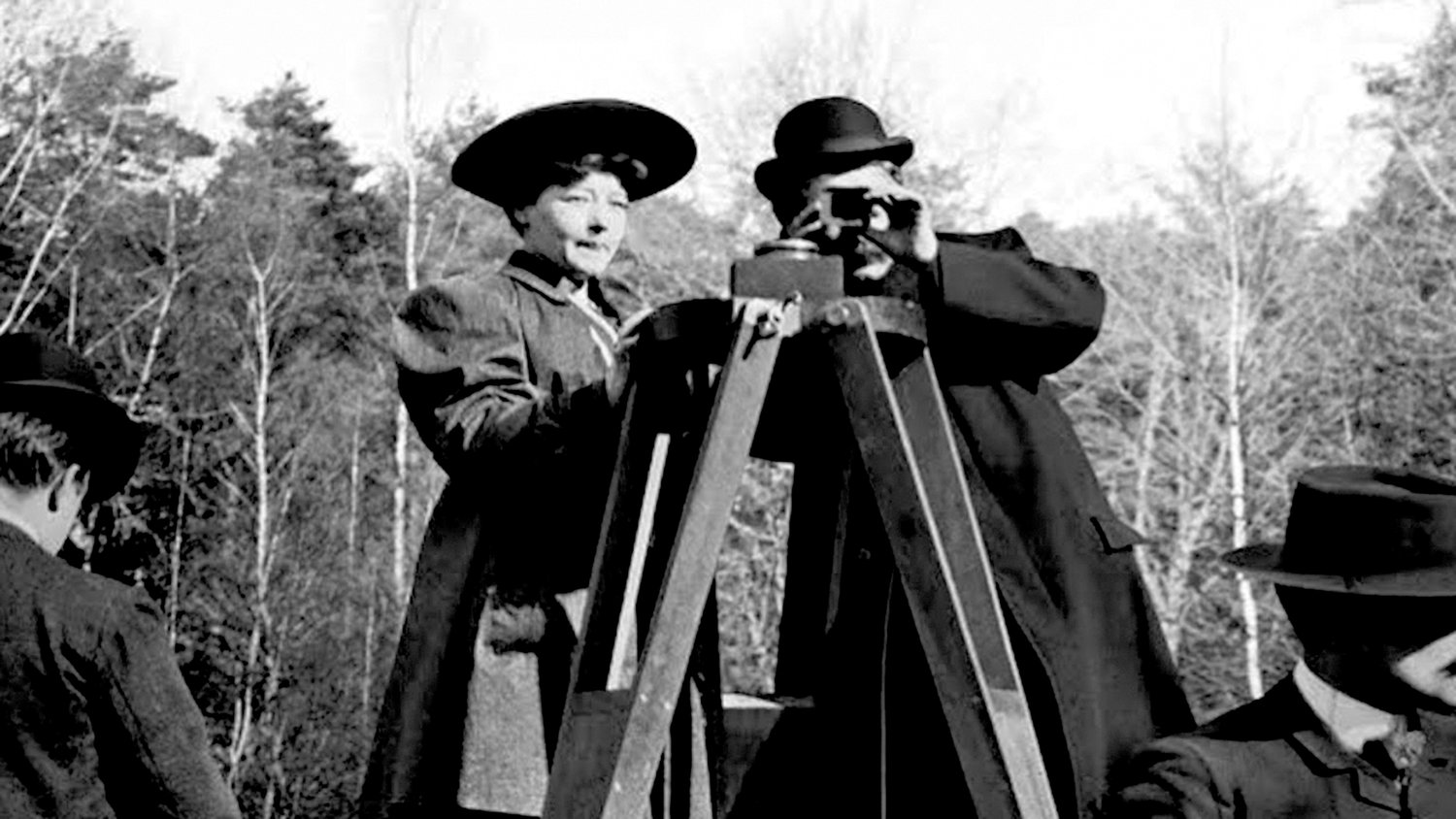If the premise of the new doc Be Natural holds water - and you rather fear it does - then the movies were at it right from the get-go. They elevated a genuine pioneer in Alice Guy (upon marriage, Guy-Blaché), the French writer-director-producer who nudged the nascent cinema away from documentary towards fiction and in the direction of (albeit prerecorded) sound, then routinely elided her from screen history in favour of the usual male suspects: the Lumières, Edwin S. Porter, D.W. Griffith and so on. I was lucky, in that a maverick lecturer at university introduced our class to the Guy-Blaché oeuvre in the late 1990s, but by then the filmmaker herself was long gone, her work mostly forgotten about. What's important about the Alice Guy-Blaché story isn't just that it challenges the myth on which the studio system was built (that filmmaking was, is and shall forever be an exclusively male pursuit: man's work, end of), but that it flags just how early the cinema got into the lousy habit of undervaluing a woman's contributions. There is, therefore, an understandable urgency about director Pamela B. Green's efforts to correct the official record: she wants to fill in the gaps before she loses our attention, pull out the clips before the nitrate rots in the archives, speak to the right people before they pass on. There's a real poignancy, for example, in watching Green's interview with Agnès Varda, one of the few name directors here who can claim to have heard of Guy-Blaché, and a woman who spent her entire career building on her predecessor's legacy. (Varda, of course, was canny enough to document her life several times over before she left us last year.)
As a film, Be Natural proves a bit of a gabble; a pleasurable and informative gabble, yes, but a gabble nevertheless. It's slightly ironic that a film addressing the silent cinema should hear from so many voices, at times it seems simultaneously; it can't and won't shut up about this woman, which is Green's way of rescuing Guy-Blaché from the silence she was cast into. She dashes through the biographical basics in under ten minutes (eased by narrator Jodie Foster's superlative French pronunciation, very nearly worth the ticket price in itself), then spends the rest of the movie dashing around the globe seeking those memento mori that will assist in making the case for her subject's historical significance - a quest for long-buried treasure. Part of Green's project lies in making the labour-intensive and often frustrating business of archiving appear sexier and possibly more collaborative than it might be offscreen, making a zippy show of what usually goes on in drab institutional backrooms, behind closed doors: she floods the screen with Google Earth-like maps, search engine findings, computer models of the studios her subject once filmed in, the raw data of a dozen or more intercontinental Skype calls. No stone is left unturned, or unfilmed, and that's quite a bit to process even before you factor in the footage Green shot with the labourers, both starry and menial, in the film industry of the 21st century.
Given the essentially scholarly nature of Green's endeavours, I did raise an eyebrow at the range of celebrity talking heads put before us here. If you asked me to ready a list of people likely to appear in a documentary on a lost pioneer of silent film, Andy Samberg, the man who gave the world the sketch known as "Dick in a Box", probably wouldn't be on there; nor, I think, would Jon Chu, the brains behind the Step Up franchise. Most don't contribute that much beyond cuing the next segment or burbling "Isn't that amazing?" at something at which we've already marvelled, though I will concede such star turns begin to make sense if you think of them - yes, even Samberg - as the sons and daughters of Guy-Blaché, being informed of a lineage of which they weren't previously aware. It is, after all, a matter of cinematic ancestry; what the film is ultimately asking about its subject is a somewhat frantic "well, who do you think she was?". Thankfully, Green isn't just well-connected. She's a great labeller, obsessively laying out her findings and showing her workings, and as the film goes on to document the extent to which Guy-Blaché was overwritten (or just plain written out) by successive generations of film historians and cultural gatekeepers, it becomes clear why: to avoid the mistakes her predecessors in this field made, and to point a way forward for further research. The talking heads are forgivable as window dressing for this filmmaker's most valuable finds: an interview from 1964 in which Guy-Blaché, then ninety, appears as sharp as the proverbial tack, and the shorts themselves, which even in extracted form look as spirited and joyous as anything in the canon. Some enterprising cinephile will doubtless be programming an updated Guy-Blaché retrospective as we speak: if they put Green's documentary upfront, its wide-reaching, earbending advocacy will sell all the tickets that remain to be sold.
Be Natural: The Untold Story of Alice Guy-Blaché is now playing in selected cinemas, and streaming via Curzon Home Cinema.

No comments:
Post a Comment